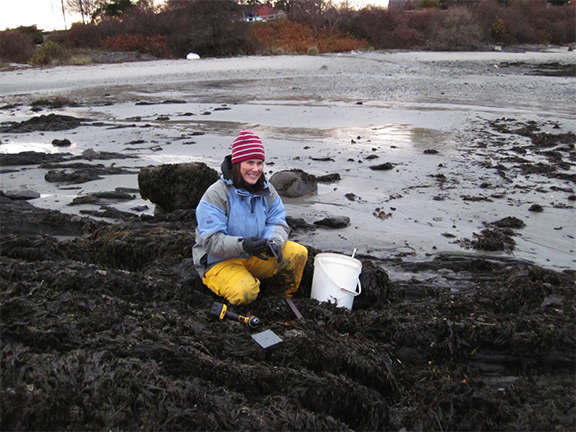DMC Director to Deliver Talk at Ecological Society of America Meeting

Heather Leslie, director of the University of Maine Darling Marine Center, will share findings developed through an international, interdisciplinary research initiative focused on coastal fisheries at the 100th annual meeting of the Ecological Society of America.
Ecological scientists are celebrating the ESA centennial in Baltimore, Maryland with presentations, workshops and musical performances focused on ecology’s role in advancing knowledge of human-environment interactions in the changing world.
The theme of the Aug. 9–14 meeting is “Ecological Science: At the Frontier.” Leslie’s talk is part of an Aug. 12 symposium she co-organized titled “Coupled Natural and Human Systems Science: The Need, Challenges and Rewards.”
Marine ecosystems that provide food, protection from coastal storms and recreation are threatened by human impacts at multiple scales, including fisheries over-exploitation and global climatic change, says Leslie, who advocates for advancing solutions-oriented knowledge of connections between people and nature.
The integrative, coupled system analyses that her team have conducted with the support of the U.S. National Science Foundation yield understanding of the sustainability of coupled social-ecological systems that is distinct from that provided by either biophysical or social sciences alone, she says.
The DMC director will talk about her development as an interdisciplinary scientist and educator and how that path has enabled her to forge connections among experts in the social and ecological sciences, as well as professionals engaged in marine policy and management and members of local communities.
For the event, Leslie also organized a companion graduate student poster session and game show on related themes.
“We are hoping that the ‘shark tank of societal relevance’ game show this evening will help us all to think a bit more creatively how to leverage our knowledge and skills in ways that benefit both nature and people,” she says.
“I, for one, am a lot more nervous about my three minutes in front of the judges — all of whom are internationally known leaders in the conservation field — than I am about my 20-minute talk for my scientific colleagues.”
The ESA, according to the conference website, “stands at a boundary between 100 successful years for the Society and an uncharted future for the planet. The Centennial meeting will support both retrospective and prospective sessions looking back at the history of the field of ecology as well as forward into its future.”
